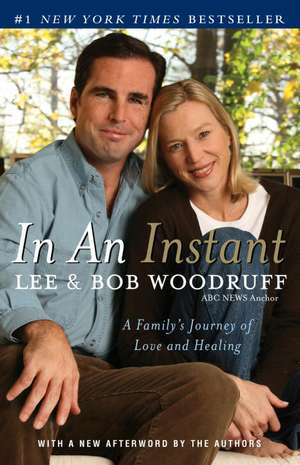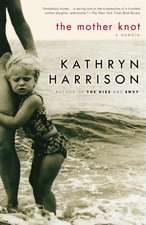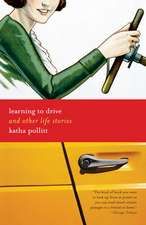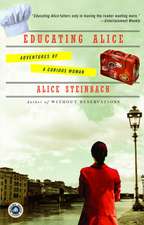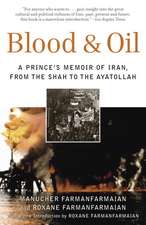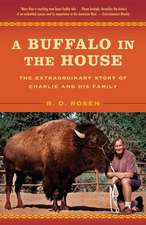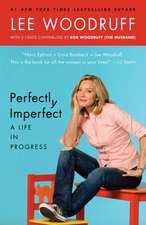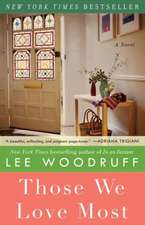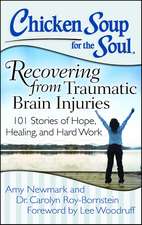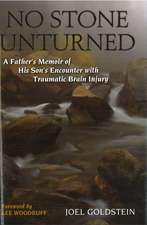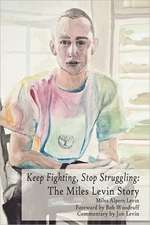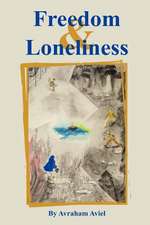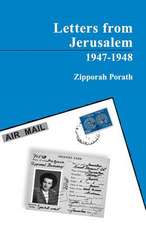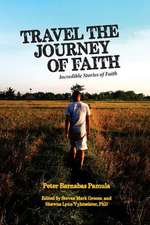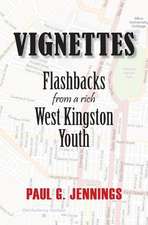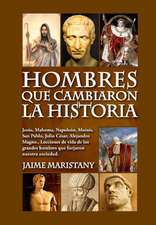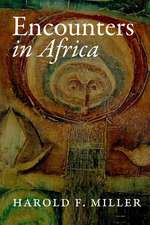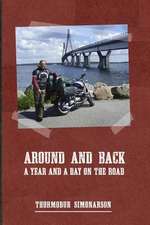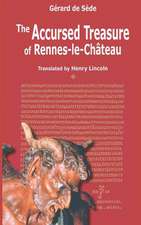In an Instant: A Family's Journey of Love and Healing
Autor Lee Woodruff, Bob Woodruffen Limba Engleză Paperback – 31 ian 2008
Vezi toate premiile Carte premiată
Books for a Better Life (2007)
In an Instant is the frank and compelling account of how Bob and Lee Woodruff’s lives came together, were blown apart, and then were miraculously put together again–and how they persevered, with grit but also with humor, through intense trauma and fear. More than a dual memoir of love and courage, In an Instant is an important, wise, and inspiring guide to coping with tragedy–and an extraordinary drama of marriage, family, war, and nation.
#1 New York Times Bestseller
“Gripping . . . The Woodruffs’ devotion to each other is palpable. . . . [In an Instant is] a remarkably lucid, even engrossing story of . . . Bob Woodruff’s recovery, interwoven with tales from his marriage and family life.”
–San Jose Mercury News
“Both Woodruffs [shoot] from the hip, writing with candor about their ordeal and describing it with an intimacy that couldn’t be captured on camera. . . . Their frankness heightens the book’s impact.”
–The New York Times
“Extraordinary . . . All sorts of themes thread their way through this frank, inspiring book: courage in the face of adversity; the pursuit of career at the expense of family; the bravery of foreign correspondents; the fortitude of female friendship. . . . Woodruff’s survival story comforts.”
–The Seattle Times
“A testimony to the power of the human spirit, to the catharsis of love and to infinite hope.”
–The Oklahoman
www.bobwoodrufffamilyfund.org
Preț: 176.12 lei
Nou
Puncte Express: 264
Preț estimativ în valută:
33.71€ • 36.63$ • 28.34£
33.71€ • 36.63$ • 28.34£
Carte tipărită la comandă
Livrare economică 17-23 aprilie
Preluare comenzi: 021 569.72.76
Specificații
ISBN-13: 9780812978254
ISBN-10: 0812978250
Pagini: 292
Ilustrații: 16-PP COLOR PHOTO SECTION
Dimensiuni: 134 x 203 x 17 mm
Greutate: 0.25 kg
Editura: Random House Trade
ISBN-10: 0812978250
Pagini: 292
Ilustrații: 16-PP COLOR PHOTO SECTION
Dimensiuni: 134 x 203 x 17 mm
Greutate: 0.25 kg
Editura: Random House Trade
Notă biografică
Lee Woodruff and Bob Woodruff live in Westchester County, New York, with their four children. Bob Woodruff was named co-anchor of ABC’s World News Tonight in December 2005. On January 29, 2006, while reporting on U.S. and Iraqi security forces, Mr. Woodruff was seriously injured by a roadside bomb that struck his vehicle near Taji, Iraq. Lee Woodruff is a public relations executive and freelance writer.
From the Hardcover edition.
From the Hardcover edition.
Extras
Chapter 1
Lee
Orlando, Florida, January 28, 2006
There is a ride at Disney World called the Tower of Terror, and on the weekend of January 28, 2006, my four children, even the twin five- year-olds, begged me to go on that ride over and over again.
Housed in a re-created aging Hollywood hotel, the ride begins where you climb into a creaky elevator that snakes its way through the creepy premises. An electrical storm kicks up, and right on cue something goes wrong with the power. The elevator in the eerie hotel suddenly drops. The descent is so rapid, so sudden, that it almost sucks your diaphragm up into your throat, and right before the drop there is a moment where you are literally suspended in air, too stunned to scream. It feels as if speed, motion, light, and time literally freeze.
We must have taken that ride a half dozen times. And then the feeling returned the following morning as I rolled over in my king-sized hotel bed. The day before, the kids and I had been to the Animal Kingdom in Disney World. We’d marveled at the African safari ride, ridden rapids in Asia, and gotten soaked as we howled our way down the man-made white water. After an early dinner we’d rented a pedal bike with another family and laughed until we cried as we raced other bikers around the lake, while fireworks from Epcot exploded overhead.
Tucking four kids into bed that night, I silently congratulated myself on a good weekend. I’d come to Disney to shoot a pilot TV show for Family Fun. We’d spent two days on set and then the rest of the time had been the kids’ reward: combing the parks for Disney character autographs for the twins and thrill-seeking rides for the older two. We’d planned to fly back home on Sunday and get ready for school.
Toting around four children by myself was not new. That weekend my husband, Bob Woodruff, the newly anointed co-anchor of ABC’s World News Tonight, was thousands of miles away in Iraq. We spoke to him briefly that day, in between the safari and the rapids ride. He and his crew had had a tiring day covering the Palestinian elections before flying on to Baghdad in advance of President Bush’s State of the Union address. The plan was to bolster ABC’s Iraq coverage at an important moment in the war. The pace was blistering, common to any foreign correspondent who must keep moving and file stories from faraway places in time zones eight to twelve hours ahead of our own.
Bob and his crew were operating on an aggressive schedule with only a few hours’ sleep each night. As usual, the itinerary was punishing. Get in, get the stories about the Iraqi military, anchor from Baghdad during Bush’s address, do some pieces for Good Morning America, and, on the way back, try to finalize an interview with the King of Jordan in Amman, the Jordanian capital.
Our conversations with him from Disney World had been short and tough. The cell service in Iraq was spotty and the time difference was frustrating. We had one conversation midday Saturday, as he and his crew were going to bed in a military compound somewhere in Baghdad. He exhaustedly mumbled something about getting much-needed sleep the next day. Exactly what he said didn’t register with me at the time. My daughter Cathryn was determined to buy a puka shell necklace. With my shoulder cradling the cell phone, I negotiated some cash from my wallet while keeping an eye on the twins, who were dangerously close to a fence in front of a bamboo grove.
Later, Bob would swear that he told me has was going to embed with the military for some exercises, while I would swear he said only that his team was going to relax for the day. At the end of our conversation I passed the cell phone around so the kids could say hi. This was common practice in our house—good nights, kisses, homework help, all via satellite. When your father covers news around the world, the phone becomes a primary communication tool, for better or worse.
“Do you feel safe there?” I asked absentmindedly, collecting the change from Cathryn. “Are you okay?” It was a stupid rhetorical question, made more absurd by the fact that we were currently standing in Disney World, “the happiest place on earth,” while he was somewhere in the most violent place on the planet.
“I do. We’re surrounded by the military. It’s fine,” he reassured me. He and his cameraman, Doug Vogt, couldn’t know that the elevator was about to drop. In the ocher-colored sands on a godforsaken highway outside Baghdad, they were about to enter their own Tower of Terror.
That night I called the front desk to request a 7 a.m. wake-up call. With the bigger kids sleeping next to the twins, perhaps I could slip downstairs the next morning and take a quick swim in the pool before breakfast. Even though it was January in Florida, the water was invigorating and it would be a great way to start our last day in Orlando.
In a few days Bob would be home and we’d be a family again. His new appointment as co-anchor had set a grueling pace for the past month, even the weekends. His days had been crammed with photo shoots, press conferences, and ad campaigns. The new program with Bob and Elizabeth Vargas was committed to go to the story, to have one anchor on the road and one in the studio as often as possible. Bob relished the challenge. It was a new era at ABC News. There was an excitement at the broadcast that was a welcome tonic after the months of sorrow following Peter Jennings’s illness and then death from lung cancer. Bob and Elizabeth would give the news department something to rally around, after feeling like a ship without its beloved captain.
“Just get through January,” I had told Bob, as he left for the Middle East on that fateful trip. It had become a kind of mantra for us after the announcement, as he shot out of the gate as a newly minted co-anchor.
“I really don’t want to leave you guys,” he said, as he leaned into the door frame of my home office, rolling suitcase in hand. He looked exhausted, distracted, and not eager to get back on a plane to return to Iraq for the sixth or seventh time in three years. The town car was already idling in the driveway.
“Just get through January,” I repeated, “and life will take on a more normal pattern. We’ll have weekends again, and we can be a family.”
He reeled off everything he’d packed, hoping I’d figure out what he might have missed. This was familiar territory, this nonchalant leaving. It should have had more weight, but to give it any more importance would have jinxed it in my mind. Pakistan, Afghanistan, Iraq, the Gaza Strip: give him a kiss as always, treat it like a normal morning, and he will come home safe and sound. I had a work deadline that day, and the sooner I got him on the road the faster I could finish my task.
Frankly, I didn’t think a lot about Bob over the Disney weekend either. The days had been full and the kids eager to pack in as much as possible. Bob drew sustenance from being on the road; the stories, the energy, the adrenaline rejuvenated him. He loved being a journalist, and that meant leaving us for stretches of time. We may not have always liked it, but we had made peace with it as a family. Periods of being intensely together were interlaced with periods of being apart.
As I rolled over and turned off the bedside light that Saturday night in Disney World, I thought we would all rise to this new challenge of Bob’s career as well. “Co-anchor.” It was good and bad. Good because he had reached the pinnacle of his profession, a plum job in television news, a successor to one of broadcast journalism’s icons. Bad because we would see him even less. Our definition of family time would need some revising.
The Sunday morning phone call pierced the quiet and I jolted awake to a bedspread of floral and chintz in a totally unfamiliar room. It took me a second to register where I was. Ah, right, I thought. Disney World. The wake-up call.
I rolled over and picked up the receiver. “Thank you,” I said, and lazily began to set it back on the cradle. I had decided to lie there for a few more minutes before I snuck out the door.
“Lee?” A faint voice came from the receiver, now almost back in place. Geesh, I thought. Personalized wake-up calls, how very Disney. I brought the phone back to my ear to thank the man.
“Lee, it’s David Westin,” the voice said.
He had my immediate attention. My brain fired signals to my body as I bolted up on the pillows. The president of ABC News does not make social calls to employees’ wives at 7 a.m. on a Sunday morning, even a co-anchor’s wife. I licked my lips and swallowed. My mouth was dry.
“We’ve been trying to reach you,” he said, in a slow measured voice. He stopped for a beat as if to gauge how he would say his next line. “Bob has been wounded in Iraq.”
I sat straight up, trying to process the information I was hearing. Every synapse in my brain was firing. “Wounded?” I said to David Westin, as calmly as I could. “What do you mean wounded?”
“He was on an embed outside of Baghdad riding with the Iraqi army. We don’t have a lot of information right now, Lee, but we are getting it as fast as we can. We are getting him the best care possible.”
“David.” I interrupted him. “Is my husband alive?”
“Yes, Lee. Bob is alive, but we believe he may have taken shrapnel to the brain.”
I tried to digest what that meant and couldn’t comprehend it. He was alive; I’d start with that. The rest was gravy.
“What was an anchor doing on a military exercise?” I asked, voice rising. “The last thing I knew he was doing a story about an ice cream shop in Baghdad. I thought they were sleeping!” My mind grasped for facts, searching for what I knew or thought I knew. I was back in the Tower of Terror.
You can’t know how you would behave in a crisis until it drops out of the sky and knocks you down like a bandit: stealing your future, robbing you of your dreams, and mocking anything that resembles certainty. Sudden tragic events and even slow-burning disasters teach us more about ourselves than most of us care to know.
I felt the panic in my voice as I spoke to David Westin, and slow tears streamed down my face. At the same time, I began to feel a cool steely calm seep into my brain. It slowly formed a cocoon in which I could think and react rationally, disembodied from my emotions. In the months to come, this cocoon would allow me to handle the very public nature of this crisis, synthesize information, deal with teams of doctors, communicate with family, and take care of the business at hand without collapsing into a mass of spineless marrow.
For now, that steely calm began to morph into the part of me that became “the General.” The General would make important decisions, hold things together for the troops, lead the charge, and—most important for our team—ensure we didn’t lose a single man on the battlefield. The General was beginning to take over.
“Lee, we have a plane waiting to take you and the kids home to Westchester,” David said. “You just have to tell us what time. It’s fueled up and ready to go.”
I felt I needed to keep him on the line for some reason. I wasn’t ready to start making decisions. I didn’t want to take my first step into this new world. I wanted to relish my old life for just a minute more. All four of my children were blissfully sound asleep beyond my door. Inside my room their secure little lives were being hacked apart while they dreamed, oblivious to the chaos.
“Okay,” I said in a small voice. “Tell me what you know. Please tell me what happened.”
“Bob and the crew were traveling on a road in Taji on a routine ride,” David said. “Bob was in an Iraqi armored vehicle. We believe he was doing a stand-up at the time, and they were hit by an IED [improvised explosive device] in an orchestrated attack on the convoy. There was gunfire after that, but neither man was hit. Bob and the cameraman, Doug Vogt, have been taken by helicopter to Baghdad and are going into surgery.
“Apparently he asked Vinnie, his producer, if he was alive; he did come to.” David spoke coolly and rationally, but he was clearly rattled.
So he spoke, I thought. He spoke. This is going to be okay. The General in my brain dictated that nothing less than recovery would be acceptable. There were no other options. Bob would be okay. He was always okay. He was lucky and bright and hardworking and a good man. Things like this didn’t happen to good people. I could feel hope in my heart, on its simplest level, as clear and bright as the streak of a shooting star. Hope is the most basic human emotion. It was the hope that wives have had since the days of the caveman, when they sent their mates out past the campfire to fight marauding tribes. Hope was good. It was a brain-stem reaction. The General in my brain moved hope into the front lines, preparing for the next maneuver.
“Lee,” David gently reminded me, “there are security people on the ground to escort you out of there. The plane is standing by; you just need to tell us what you want to do. Let us know what time you want to go. When you get home, we are working on getting you to Germany, where Bob will be transported.”
For one moment the silliest thought flashed through my mind. I thought about how much my kids had wanted to ride the Soarin’ attraction and see the rest of Epcot. The part of my brain that was still in shock weighed the option of not ruining their perfectly planned morning for about a tenth of a second before I clicked into action.
“David, let me process this,” I said. “I have to call Bob’s folks and my family, and then I have to wake up the kids and pack. And I need to think. Let me just get outside of this hotel room so I can talk, and then I’ll call you back as soon as possible.”
From the Hardcover edition.
Lee
Orlando, Florida, January 28, 2006
There is a ride at Disney World called the Tower of Terror, and on the weekend of January 28, 2006, my four children, even the twin five- year-olds, begged me to go on that ride over and over again.
Housed in a re-created aging Hollywood hotel, the ride begins where you climb into a creaky elevator that snakes its way through the creepy premises. An electrical storm kicks up, and right on cue something goes wrong with the power. The elevator in the eerie hotel suddenly drops. The descent is so rapid, so sudden, that it almost sucks your diaphragm up into your throat, and right before the drop there is a moment where you are literally suspended in air, too stunned to scream. It feels as if speed, motion, light, and time literally freeze.
We must have taken that ride a half dozen times. And then the feeling returned the following morning as I rolled over in my king-sized hotel bed. The day before, the kids and I had been to the Animal Kingdom in Disney World. We’d marveled at the African safari ride, ridden rapids in Asia, and gotten soaked as we howled our way down the man-made white water. After an early dinner we’d rented a pedal bike with another family and laughed until we cried as we raced other bikers around the lake, while fireworks from Epcot exploded overhead.
Tucking four kids into bed that night, I silently congratulated myself on a good weekend. I’d come to Disney to shoot a pilot TV show for Family Fun. We’d spent two days on set and then the rest of the time had been the kids’ reward: combing the parks for Disney character autographs for the twins and thrill-seeking rides for the older two. We’d planned to fly back home on Sunday and get ready for school.
Toting around four children by myself was not new. That weekend my husband, Bob Woodruff, the newly anointed co-anchor of ABC’s World News Tonight, was thousands of miles away in Iraq. We spoke to him briefly that day, in between the safari and the rapids ride. He and his crew had had a tiring day covering the Palestinian elections before flying on to Baghdad in advance of President Bush’s State of the Union address. The plan was to bolster ABC’s Iraq coverage at an important moment in the war. The pace was blistering, common to any foreign correspondent who must keep moving and file stories from faraway places in time zones eight to twelve hours ahead of our own.
Bob and his crew were operating on an aggressive schedule with only a few hours’ sleep each night. As usual, the itinerary was punishing. Get in, get the stories about the Iraqi military, anchor from Baghdad during Bush’s address, do some pieces for Good Morning America, and, on the way back, try to finalize an interview with the King of Jordan in Amman, the Jordanian capital.
Our conversations with him from Disney World had been short and tough. The cell service in Iraq was spotty and the time difference was frustrating. We had one conversation midday Saturday, as he and his crew were going to bed in a military compound somewhere in Baghdad. He exhaustedly mumbled something about getting much-needed sleep the next day. Exactly what he said didn’t register with me at the time. My daughter Cathryn was determined to buy a puka shell necklace. With my shoulder cradling the cell phone, I negotiated some cash from my wallet while keeping an eye on the twins, who were dangerously close to a fence in front of a bamboo grove.
Later, Bob would swear that he told me has was going to embed with the military for some exercises, while I would swear he said only that his team was going to relax for the day. At the end of our conversation I passed the cell phone around so the kids could say hi. This was common practice in our house—good nights, kisses, homework help, all via satellite. When your father covers news around the world, the phone becomes a primary communication tool, for better or worse.
“Do you feel safe there?” I asked absentmindedly, collecting the change from Cathryn. “Are you okay?” It was a stupid rhetorical question, made more absurd by the fact that we were currently standing in Disney World, “the happiest place on earth,” while he was somewhere in the most violent place on the planet.
“I do. We’re surrounded by the military. It’s fine,” he reassured me. He and his cameraman, Doug Vogt, couldn’t know that the elevator was about to drop. In the ocher-colored sands on a godforsaken highway outside Baghdad, they were about to enter their own Tower of Terror.
That night I called the front desk to request a 7 a.m. wake-up call. With the bigger kids sleeping next to the twins, perhaps I could slip downstairs the next morning and take a quick swim in the pool before breakfast. Even though it was January in Florida, the water was invigorating and it would be a great way to start our last day in Orlando.
In a few days Bob would be home and we’d be a family again. His new appointment as co-anchor had set a grueling pace for the past month, even the weekends. His days had been crammed with photo shoots, press conferences, and ad campaigns. The new program with Bob and Elizabeth Vargas was committed to go to the story, to have one anchor on the road and one in the studio as often as possible. Bob relished the challenge. It was a new era at ABC News. There was an excitement at the broadcast that was a welcome tonic after the months of sorrow following Peter Jennings’s illness and then death from lung cancer. Bob and Elizabeth would give the news department something to rally around, after feeling like a ship without its beloved captain.
“Just get through January,” I had told Bob, as he left for the Middle East on that fateful trip. It had become a kind of mantra for us after the announcement, as he shot out of the gate as a newly minted co-anchor.
“I really don’t want to leave you guys,” he said, as he leaned into the door frame of my home office, rolling suitcase in hand. He looked exhausted, distracted, and not eager to get back on a plane to return to Iraq for the sixth or seventh time in three years. The town car was already idling in the driveway.
“Just get through January,” I repeated, “and life will take on a more normal pattern. We’ll have weekends again, and we can be a family.”
He reeled off everything he’d packed, hoping I’d figure out what he might have missed. This was familiar territory, this nonchalant leaving. It should have had more weight, but to give it any more importance would have jinxed it in my mind. Pakistan, Afghanistan, Iraq, the Gaza Strip: give him a kiss as always, treat it like a normal morning, and he will come home safe and sound. I had a work deadline that day, and the sooner I got him on the road the faster I could finish my task.
Frankly, I didn’t think a lot about Bob over the Disney weekend either. The days had been full and the kids eager to pack in as much as possible. Bob drew sustenance from being on the road; the stories, the energy, the adrenaline rejuvenated him. He loved being a journalist, and that meant leaving us for stretches of time. We may not have always liked it, but we had made peace with it as a family. Periods of being intensely together were interlaced with periods of being apart.
As I rolled over and turned off the bedside light that Saturday night in Disney World, I thought we would all rise to this new challenge of Bob’s career as well. “Co-anchor.” It was good and bad. Good because he had reached the pinnacle of his profession, a plum job in television news, a successor to one of broadcast journalism’s icons. Bad because we would see him even less. Our definition of family time would need some revising.
The Sunday morning phone call pierced the quiet and I jolted awake to a bedspread of floral and chintz in a totally unfamiliar room. It took me a second to register where I was. Ah, right, I thought. Disney World. The wake-up call.
I rolled over and picked up the receiver. “Thank you,” I said, and lazily began to set it back on the cradle. I had decided to lie there for a few more minutes before I snuck out the door.
“Lee?” A faint voice came from the receiver, now almost back in place. Geesh, I thought. Personalized wake-up calls, how very Disney. I brought the phone back to my ear to thank the man.
“Lee, it’s David Westin,” the voice said.
He had my immediate attention. My brain fired signals to my body as I bolted up on the pillows. The president of ABC News does not make social calls to employees’ wives at 7 a.m. on a Sunday morning, even a co-anchor’s wife. I licked my lips and swallowed. My mouth was dry.
“We’ve been trying to reach you,” he said, in a slow measured voice. He stopped for a beat as if to gauge how he would say his next line. “Bob has been wounded in Iraq.”
I sat straight up, trying to process the information I was hearing. Every synapse in my brain was firing. “Wounded?” I said to David Westin, as calmly as I could. “What do you mean wounded?”
“He was on an embed outside of Baghdad riding with the Iraqi army. We don’t have a lot of information right now, Lee, but we are getting it as fast as we can. We are getting him the best care possible.”
“David.” I interrupted him. “Is my husband alive?”
“Yes, Lee. Bob is alive, but we believe he may have taken shrapnel to the brain.”
I tried to digest what that meant and couldn’t comprehend it. He was alive; I’d start with that. The rest was gravy.
“What was an anchor doing on a military exercise?” I asked, voice rising. “The last thing I knew he was doing a story about an ice cream shop in Baghdad. I thought they were sleeping!” My mind grasped for facts, searching for what I knew or thought I knew. I was back in the Tower of Terror.
You can’t know how you would behave in a crisis until it drops out of the sky and knocks you down like a bandit: stealing your future, robbing you of your dreams, and mocking anything that resembles certainty. Sudden tragic events and even slow-burning disasters teach us more about ourselves than most of us care to know.
I felt the panic in my voice as I spoke to David Westin, and slow tears streamed down my face. At the same time, I began to feel a cool steely calm seep into my brain. It slowly formed a cocoon in which I could think and react rationally, disembodied from my emotions. In the months to come, this cocoon would allow me to handle the very public nature of this crisis, synthesize information, deal with teams of doctors, communicate with family, and take care of the business at hand without collapsing into a mass of spineless marrow.
For now, that steely calm began to morph into the part of me that became “the General.” The General would make important decisions, hold things together for the troops, lead the charge, and—most important for our team—ensure we didn’t lose a single man on the battlefield. The General was beginning to take over.
“Lee, we have a plane waiting to take you and the kids home to Westchester,” David said. “You just have to tell us what time. It’s fueled up and ready to go.”
I felt I needed to keep him on the line for some reason. I wasn’t ready to start making decisions. I didn’t want to take my first step into this new world. I wanted to relish my old life for just a minute more. All four of my children were blissfully sound asleep beyond my door. Inside my room their secure little lives were being hacked apart while they dreamed, oblivious to the chaos.
“Okay,” I said in a small voice. “Tell me what you know. Please tell me what happened.”
“Bob and the crew were traveling on a road in Taji on a routine ride,” David said. “Bob was in an Iraqi armored vehicle. We believe he was doing a stand-up at the time, and they were hit by an IED [improvised explosive device] in an orchestrated attack on the convoy. There was gunfire after that, but neither man was hit. Bob and the cameraman, Doug Vogt, have been taken by helicopter to Baghdad and are going into surgery.
“Apparently he asked Vinnie, his producer, if he was alive; he did come to.” David spoke coolly and rationally, but he was clearly rattled.
So he spoke, I thought. He spoke. This is going to be okay. The General in my brain dictated that nothing less than recovery would be acceptable. There were no other options. Bob would be okay. He was always okay. He was lucky and bright and hardworking and a good man. Things like this didn’t happen to good people. I could feel hope in my heart, on its simplest level, as clear and bright as the streak of a shooting star. Hope is the most basic human emotion. It was the hope that wives have had since the days of the caveman, when they sent their mates out past the campfire to fight marauding tribes. Hope was good. It was a brain-stem reaction. The General in my brain moved hope into the front lines, preparing for the next maneuver.
“Lee,” David gently reminded me, “there are security people on the ground to escort you out of there. The plane is standing by; you just need to tell us what you want to do. Let us know what time you want to go. When you get home, we are working on getting you to Germany, where Bob will be transported.”
For one moment the silliest thought flashed through my mind. I thought about how much my kids had wanted to ride the Soarin’ attraction and see the rest of Epcot. The part of my brain that was still in shock weighed the option of not ruining their perfectly planned morning for about a tenth of a second before I clicked into action.
“David, let me process this,” I said. “I have to call Bob’s folks and my family, and then I have to wake up the kids and pack. And I need to think. Let me just get outside of this hotel room so I can talk, and then I’ll call you back as soon as possible.”
From the Hardcover edition.
Descriere
ABCs "World News Tonight" co-anchor Bob Woodruff and his wife share the never-before-told story about the attack in Iraq that left Bob seriously injured. This honest, frank account is a love story of two people and how they have recovered and renewed their lives.
Premii
- Books for a Better Life Finalist, 2007
